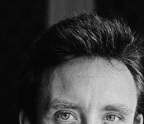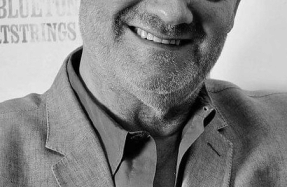
In the annals of 20th-century history, Sunday September 18, 1983 will go down as being about as uneventful as it gets. The Caribbean islands of St Kitts and Nevis finally gained their independence after two centuries of British rule. Long-distance walker George Meegan completed a six-year-trek across the western hemisphere…
But in a small studio in MTV’s New York HQ, something monumental was happening. There, the four members of Kiss – those pansticked titans of glitter-metal – were about reveal their faces to the world for the first time in their 10-year-career. Stripped of warpaint and under unforgiving studio lights, these great American icons were ready for their close-up.
Watch the footage on YouTube now, and it’s a strangely solemn experience. In the hushed studio, MTV ‘VJ’ JJ Jackson introduces the band in a fathoms-deep voice as, one by one, images of them flash on screen. At each beat, the shot of the made-up band member vanishes and is replaced by an image of them live from the studio floor: lead guitarist Vinnie Vincent looking vacant, drummer Eric Carr coquettish, guitarist/vocalist Paul Stanley glowering, bassist Gene Simmons smirking.
This was a very different kind of theatrics from the band who made their name as rock’s greasepainted Gods Of Thunder. But for all the hoopla, it was been born out of necessity. The huge successes of the 70s were an increasingly distant memory, and the failure of their most recent albums had found them floundering in a new musical world, unsure of who they were and where they were going. Taking off the makeup was the very last (space) ace up their sleeve. This was make or break!
“It had really run its course,” says Paul Stanley. “It was no longer the original images. We had a fox and we had an Egyptian guy. Maybe next we’d have Turtle Boy. It was becoming farcical. We needed to take a stand. If we were good enough and viable enough as a band, we would survive. If not, we would meet the extinction we deserved.”
Kiss’s grand unmasking would be a tipping point in the most torrid decade of their career. Before it, they were heading platform boot-ward towards extinction. Afterwards, they slowly but surely regained their status as one of America’s pre-eminent rock bands with a canon of towering 80s records that stood steel-clawed toecap to steelclawed toecap with everything they’d done before, and helped lead MTV’s rock revolution. Albums like Lick It Up and Asylum might not have had the boot-in-the-balls impact of Kiss’s 70s heyday, but at its very best their 80s output stands among the finest melodic rock that era produced. And it was made as Stanley and Simmons were fighting for the very soul of Kiss.
“We became victims of our own fame,” says Stanley. “We lost the hunger, lost the passion, lost focus. We became more concerned with trying to get the approval of our peers, as opposed to maintaining our connection to the fans. We became swallowed up by our success.”
Kiss had exited the 70s on a high, at least professionally. The disco dust-sprinkled I Was Made For Loving You had given them one of their biggest hits, albeit to the disgust of some of their rockier fans who – rightly – saw it as a shameless attempt to keep up with the times.
As Stanley steeled himself to enter the new decade, he had a lot on his mind. “There was a reorganising of my thoughts about what the band was and what it would be,” he says now. “I quickly went from thinking that we were the four musketeers, that it was all for one and one for all, to: ‘What do we do now?’ When certain people aren’t pulling their weight and sabotaging what you want to do. Just wanting to fuck things up.”
“Both Ace Frehley and Peter Criss wanted to leave the band,” says Simmons. “And the manager decided that we should do solo records to keep the band together: ‘They’re solo records, but they’ll be Kiss records too,’ he said. ‘You’ll have your cake and eat it.’






